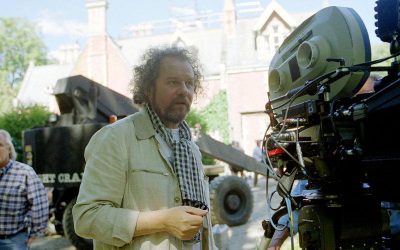First things first: what do we mean when we talk about independent (or indie) films? Independent films don’t refer to just one particular genre. Rather, a film is classed as independent if it is made outside of the big studios. They’re made outside of the film studio system, which means that they don’t usually have any involvement or endorsement from the major movie studios or television networks, and they’re usually made by people who work outside of these systems, too. They are, instead, usually made and distributed by individuals or independent entertainment companies. Big studios often come with big budgets – and conversely, indie films are often made on a smaller budget than mainstream productions. That means that indie filmmakers can retain more control over their films than they would if they were working within the remits of the Hollywood film industry, where film studios control all aspects of filmmaking, from production to distribution. There’s a great range of different indie filmmakers, which means that one-person productions and some of the biggest movies of recent times can both fall under the category of ‘independent film’, simply because they were made outside of the remits of the big studio structures. Indie filmmakers, then, aren’t necessarily only up-and-coming names that you’ve never heard of. No, it’s likely that some of your favourite directors are also independent film producers. Did you know that David Lynch, director of Mulholland Drive, is an indie filmmaker? That The Terminator wasn’t made by a big-budget studio but is, in fact, an indie film? Or that Edgar Wright, the director behind Shaun of the Dead, Hot Fuzz and Baby Driver isn’t attached to a film studio, leaving him free to blend genres and make the films that he wants to make? Or how about that iconic 80s movie, Dirty Dancing – did you know that it too is an independent film? So, both new and established filmmakers can make independent films – all it means is that they’re doing things on their own, in their own way, rather than being attached to a particular film studio. If so many big-name filmmakers have chosen to go down the independent route, there must be a good reason for it. One of the major draws of independent filmmaking is the freedom it gives directors. They’re able to create a film that follows their own vision, without any interference from studios who may want to take the film in a certain direction to appeal to mainstream audiences. Commercial films are, unsurprisingly, made with money in mind – but independent films may not necessarily have box office success as their driving force (although most indie filmmakers wouldn’t argue that it’s nice to make money from their movies!). That means that filmmakers may be more guided by their creative vision when making an independent film – which can result in some of the funniest, most beautiful, or most thrilling films out there, as in the indie film examples noted above. Another big benefit of independent filmmaking is that it’s more accessible to everyone. It can be hard to get noticed by the big studios when you’re just starting out or are in the initial stages of your career. But there’s no need to wait to hit the big-time – all you need to get started as an indie filmmaker is an idea, and the means to turn it in to a film. As Edgar Wright says in his BBC Maestro course on Filmmaking, “The wonderful thing about filmmaking is that, like most art forms, you don’t necessarily need to attend a school in order to learn the craft.” So, if you want to make a film, you can – and in the process, you’ll start to develop new skills that will help you when it comes to the next film! You also get to choose who you work with when you go down the indie route. Sometimes, when you work with a big film studio, you get less say in who you make the film with, but as an indie, you can build a solid crew of likeminded people, from independent producers to actors you really admire,– and it’s likely that you’ll have a ball while making your film. And, as Edgar Wright notes in his BBC Maestro course: “You never know where your early collaborators will end up. So, take advantage of other young and motivated individuals around you and find projects you want to make with them.











